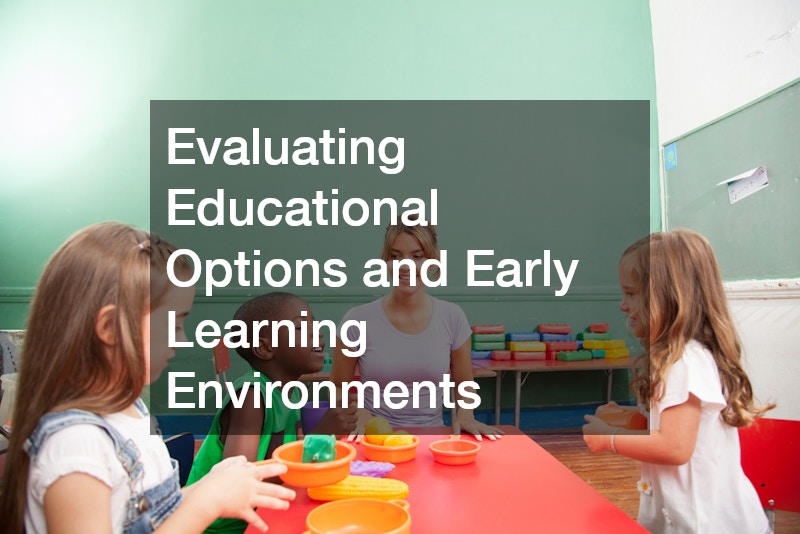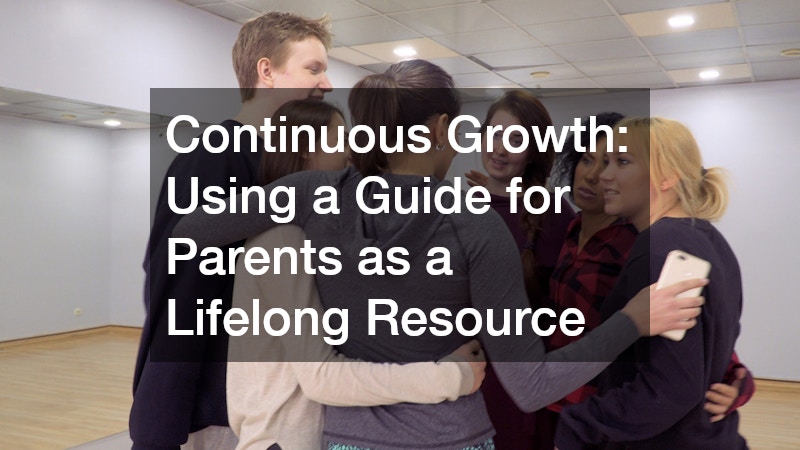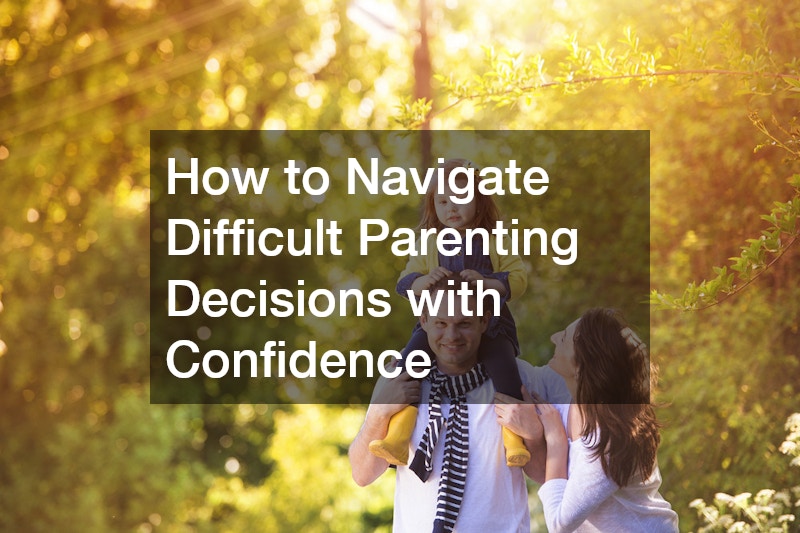Parenting is one of life’s most rewarding yet challenging journeys. Every choice—from your child’s education to their emotional well-being—shapes their future in profound ways. Yet with so much advice, information, and pressure from every direction, it’s easy for even the most dedicated parents to feel uncertain about whether they’re making the right moves. The truth is, no parent has all the answers—but learning how to approach tough choices with intention, reflection, and compassion can make all the difference.
This comprehensive guide will help you gain clarity and confidence when making difficult parenting decisions. By exploring strategies for emotional balance, gathering trustworthy information, and aligning choices with your family’s values, you’ll feel more empowered to lead your child’s development thoughtfully. Whether you’re choosing a school, managing health needs, or balancing discipline with empathy, this guide will give you a steady foundation to move forward with confidence.
Understanding the Emotional Weight Behind Parenting Choices
Parenting decisions often come with emotional complexity. You’re not just deciding what’s convenient—you’re shaping your child’s future, nurturing their confidence, and protecting their well-being. The stakes feel high because they are. That weight can lead to second-guessing, guilt, or anxiety, especially when external voices—friends, relatives, online experts—add pressure or conflicting opinions.
To navigate these emotions, it’s important to separate instinct from insecurity. Instinct often feels calm, intuitive, and grounded in love. Insecurity feels reactive, driven by fear or comparison. Learning to recognize which voice you’re listening to can help clarify whether your choice aligns with your true values.
Another emotional layer comes from cultural expectations and social comparisons. In today’s hyper-connected world, parents often feel judged by invisible standards—whether it’s about sleep training, diet, or education. However, your child’s needs are unique. What works for one family may not suit another. Practicing self-compassion and acknowledging that “perfect” doesn’t exist allows you to focus on progress over perfection.
Building confidence also involves open communication with your partner or co-parent. When both parties feel heard, decisions become collaborative rather than contentious. Set aside time for calm discussion, focusing not on who’s right, but on what’s best for your child.
Finally, remind yourself that no single choice defines your parenting journey. Every decision is a learning opportunity. If one approach doesn’t work, you can adjust. Confidence comes not from certainty, but from knowing you’ll continue to show up, stay informed, and make the best possible choice for your child at each stage of life.
Aligning Decisions with Core Family Values
Before diving into research, recommendations, or comparisons, it’s essential to clarify your family’s core values. These principles act as a compass when evaluating difficult parenting decisions. For example, if your top priorities are kindness, curiosity, and resilience, you’ll likely seek environments that nurture emotional intelligence and creativity rather than pure academic rigor.
Start by identifying what matters most to your household. Discuss what kind of adults you hope your children will become. Do you value independence? Collaboration? Spiritual growth? Health? Social responsibility? Once you’ve defined these traits, every decision—from schooling to extracurriculars—can align with these guiding principles.
When challenges arise, refer back to your family’s value statement. If a potential solution doesn’t fit your philosophy, it’s probably not the right choice, even if it seems popular or convenient. This clarity will make it easier to filter out external noise and trust your judgment.
Values also help you model consistency. Children feel secure when they see adults make decisions rooted in clear beliefs. When your actions align with your words, they learn integrity.
Incorporating your child’s voice is equally important. As they grow, invite them into value-based discussions. Ask questions like, “What feels important to you in a learning environment?” or “How do you think we should handle this challenge?” Including them builds critical thinking and ownership over their development.
By grounding choices in values, you transform difficult parenting decisions from stressful dilemmas into opportunities to reinforce your family’s unique identity.
Integrating a Holistic Approach to Child Development
A holistic approach to child development recognizes that growth isn’t limited to academics. Emotional intelligence, creativity, physical health, and social awareness are equally vital. When faced with tough choices—like choosing a learning program or setting boundaries around technology—parents who consider the whole child make more balanced decisions.
This approach emphasizes nurturing mind, body, and spirit. For instance, while academic excellence may open doors, emotional resilience helps children walk through them. Encouraging mindfulness, empathy, and curiosity fosters adaptability in an ever-changing world.
Holistic parenting means looking beyond immediate outcomes to long-term growth. Instead of asking, “How do I get my child to obey?” you might ask, “What lesson will help my child develop self-discipline?” This subtle shift reframes your role from enforcer to guide.
Additionally, holistic development invites you to support your child’s individuality. Some children thrive in structured routines; others need creative freedom. Understanding your child’s temperament and learning style will guide decisions about education, extracurriculars, and discipline.
Health also plays a central role. Physical well-being impacts mental performance and emotional regulation. Ensuring proper sleep, nutrition, and play is just as important as academic preparation. When you integrate these elements, your parenting decisions naturally become more balanced, compassionate, and sustainable.
Ultimately, adopting a holistic mindset helps you trust the process. Children evolve, and your role is to nurture their potential, not mold them into perfection. By focusing on the whole picture, you make choices that foster well-rounded growth and lifelong confidence.

Evaluating Educational Options and Early Learning Environments
Education is one of the most influential areas of childhood development, and selecting the right environment can feel daunting. Whether you’re comparing preschool centers, prep schools, or local early learning centers, each choice carries unique benefits and considerations.
For younger children, play-based learning is often foundational. Quality preschool programs emphasize social-emotional skills, sensory exploration, and creativity. When evaluating preschool centers, look for teachers who understand developmental milestones, foster curiosity, and encourage independent thinking. Small class sizes and a warm, inclusive atmosphere often predict a positive experience.
As children approach school age, families may explore prep schools for their structured academics and enrichment opportunities. These institutions can provide rigorous coursework and individualized attention, helping students develop study habits early. However, consider your child’s personality—some thrive in academic environments, while others flourish in more flexible settings.
For parents seeking community-driven education, local early learning centers often offer smaller-scale programs deeply rooted in neighborhood values. These centers may emphasize diversity, inclusivity, and family engagement, allowing parents to stay actively involved. When assessing any option, visit classrooms, observe teacher-child interactions, and ask about philosophies. Do they value exploration, cooperation, and emotional intelligence, or focus primarily on test readiness? The best match aligns with both your family’s values and your child’s unique learning style.
Enrichment and Extracurricular Activities for Balanced Growth
Beyond academics, enrichment activities play a crucial role in shaping identity, confidence, and resilience. Programs like summer camps offer children opportunities to explore new interests, practice independence, and form friendships outside their usual circles. When navigating which activities to prioritize, focus on balance rather than over-scheduling.
Summer camps can cultivate leadership, problem-solving, and teamwork through hands-on experiences. Whether it’s arts, sports, nature, or STEM, these environments encourage self-discovery and adaptability. For parents, they provide a window into how children navigate unfamiliar settings—a valuable insight for future parenting decisions.
Extracurriculars during the school year—music, martial arts, volunteer work, or robotics—build specialized skills and help kids develop persistence. The key is to follow your child’s enthusiasm. When an activity aligns with intrinsic motivation, participation becomes joyful rather than forced.
However, be mindful of burnout. Overscheduling can lead to stress, fatigue, and diminished creativity. Allow downtime for unstructured play and family connection. Free time fosters imagination, emotional regulation, and problem-solving skills just as vital as academic or athletic achievements.
Involving children in choosing their activities teaches agency and responsibility. Ask open-ended questions like, “What do you enjoy most about this?” or “Would you like to try something new next season?” When kids have a voice in their schedule, they develop autonomy—a cornerstone of confidence. Ultimately, enrichment is about nurturing the whole child. By blending structure with freedom, and discipline with fun, you support a well-rounded foundation for both personal growth and family harmony.

Health and Wellness: Building a Network of Trusted Professionals
A strong support system of health professionals ensures your child’s physical and emotional well-being. Decisions about urgent care for children, dental needs, and developmental assessments can feel overwhelming, but having reliable providers brings peace of mind.
Establishing a relationship with a family pediatrician creates continuity of care. They understand your child’s history, temperament, and medical needs, making them a key partner in health-related parenting decisions. For sudden illnesses or minor injuries, urgent care for children offers convenience and quick attention outside traditional office hours. Choosing a center experienced with pediatric patients ensures comfort and accuracy in treatment.
Dental health is equally important. Early visits to a pediatric dentist help children develop positive associations with oral care. These specialists use kid-friendly techniques, making checkups less intimidating. Addressing issues like cavities or alignment early prevents larger complications later.
As children grow, some may require kids braces to correct misalignments or improve oral function. Orthodontic treatment is not just cosmetic—it supports speech, digestion, and confidence. Consulting a qualified orthodontist early helps plan for any interventions.
In addition to physical health, mental well-being deserves equal attention. Teaching coping skills, emotional awareness, and open communication prepares children to navigate stress. If needed, therapists or counselors can provide additional support.
By surrounding your family with compassionate professionals, you reduce uncertainty and gain reassurance that you’re addressing your child’s holistic needs. Trustworthy guidance transforms medical decisions from stressful guesswork into informed, confident action.
Education Transitions: Choosing the Best Elementary School
Selecting the best elementary school for your child marks a significant milestone. It’s often the first long-term academic environment where foundational habits, friendships, and confidence take shape. To make this decision with clarity, consider both tangible factors—curriculum, class size, location—and intangible qualities like community culture and emotional support.
Start by identifying your child’s learning style. Do they thrive on structure, or do they learn best through exploration? Schools differ in philosophy—some emphasize traditional academics, while others focus on inquiry-based learning or project-based approaches. Visit classrooms, speak with teachers, and observe how students engage with lessons.
School culture matters as much as curriculum. Look for an environment that celebrates diversity, inclusivity, and creativity. A positive culture fosters belonging, reduces anxiety, and enhances academic performance. Parent involvement is another strong indicator of community strength—active partnerships between families and educators lead to better outcomes.
Extracurricular offerings, arts programs, and social-emotional learning initiatives add value beyond academics. A well-rounded education helps children develop empathy, curiosity, and collaboration—skills that transcend test scores.
The best elementary school is one where your child feels seen, supported, and inspired to grow. Making this choice thoughtfully strengthens your overall confidence in future parenting decisions, reinforcing that the right fit is about harmony—not prestige.

Continuous Growth: Using a Guide for Parents as a Lifelong Resource
Parenting doesn’t come with a manual, but using a guide for parents can help you feel more grounded when faced with uncertainty. These resources—books, podcasts, workshops, and support groups—offer expert insight, real-world examples, and reassurance that you’re not alone.
A strong guide serves as a reference point, reminding you that every family faces challenges. By learning from diverse perspectives, you expand your toolkit of strategies and gain flexibility in problem-solving. Look for evidence-based materials written by credible professionals—child psychologists, educators, and pediatricians—who emphasize empathy and practicality.
Beyond reading, community support is invaluable. Local parent groups and online forums allow you to exchange ideas, share experiences, and find solidarity. However, approach digital spaces thoughtfully—filter out judgmental voices and focus on constructive dialogue.
Leading with Confidence and Compassion
Navigating difficult parenting decisions isn’t about perfection—it’s about presence. Each choice, whether it involves health, education, or emotional development, is a chance to reaffirm your commitment to raising a thoughtful, resilient, and compassionate child.
By grounding decisions in your family’s values, embracing a holistic perspective, and seeking trustworthy support, you build the confidence needed to lead with clarity. Remember, no path is linear. You’ll make adjustments, learn lessons, and grow alongside your child.
Confidence in parenting comes not from always knowing the answer, but from the willingness to keep showing up—with love, humility, and courage. Every thoughtful decision you make lays another brick on the foundation of your child’s future—and your family’s shared strength.




